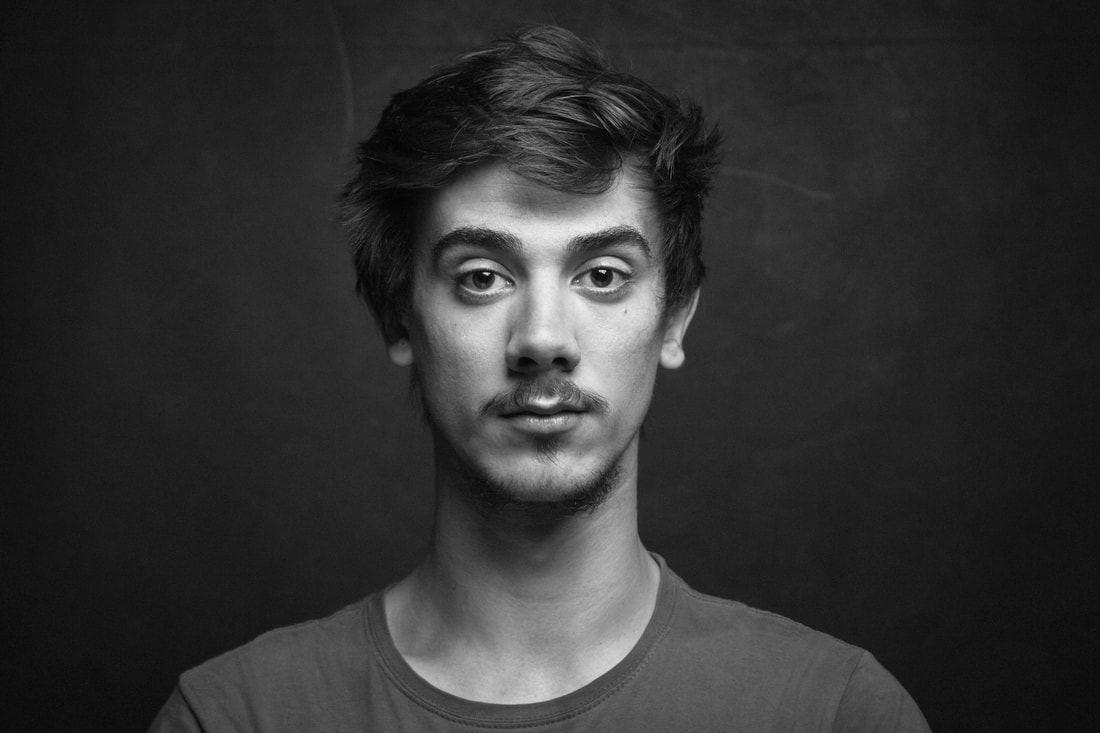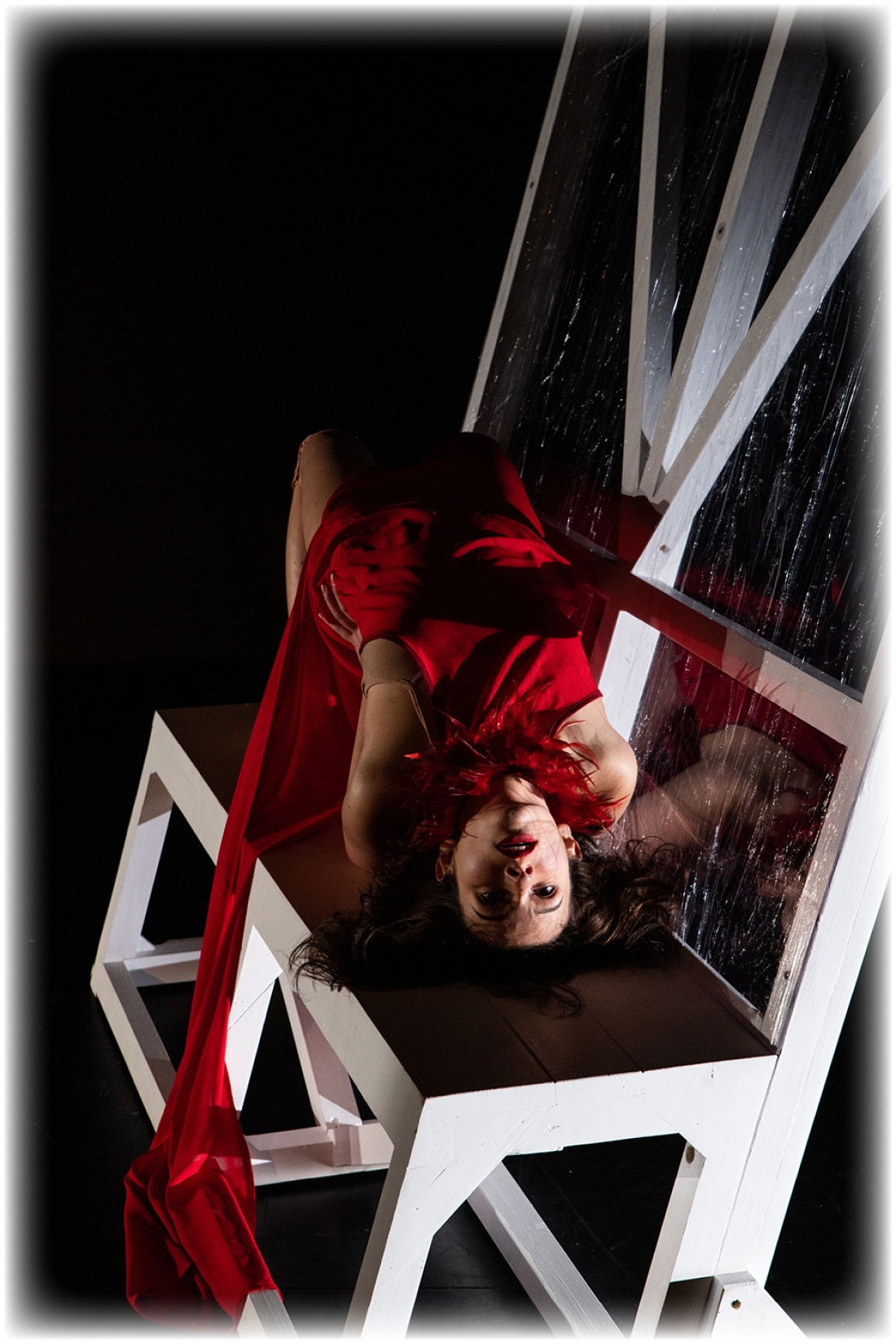Interview
Diogo Freitas
November
2021
Thu
4
Director of Como perder um país [How to lose a country], to be presented on November 12th and 13th, on the stage of the Grand Auditorium of Teatro Rivoli
How does Como perder um país [How to Lose a Country] relate to History and the past?
We have two narratives that run in parallel. On the one hand, there is the past. We tell the story of the Trojan War–a war that started because of a love. In Troy, there was a wall that, they say, was impenetrable and that was destroyed by a trick–the Trojan Horse.
On the other hand, there is a narrative that has a more direct relationship to politics. Amidst a destroyed nation and in need of elections, there are two governors in action to find out who will govern the country. This relationship that we wanted to create with the past and with the History that we call “History of the Future” is full of analogies, metaphors, and comparisons with the present.
We want to warn that this is also happening to our democracy. It is also constantly being toppled without us noticing it. Or we just don't want to notice–which is even more serious. There are several analogies that we make with current democracy and with this story that is happening at the same time – and being told to the public.
Is there a kind of dystopian future, close to science fiction in the show?
Yes, it's close to science fiction. We wanted to put even more veracity in this speech about the alliance of technology and science to propose a dystopian and absurd game in the way the population will choose these two rulers; in other words, we no longer have the electoral campaign. These two politicians enter in a kind of virtual reality simulation without being aware of it, completely obliterating the question of reality, but for them, the reality remains, as if each one of them had won the elections.
People will see images of these two men making decisions according to each situation. Only it's all obscene. Personal and professional life begin to mix. There is a limbo… For example, one of the governors has a great love for his wife and wants to be a father. One of the questions you are asked is: "And when you are a father, what will be your priority, the nation or your child?" It seems that they are constantly being tested. There are these two fields that mix and that are dangerous.
What kind of references and concerns were at the base of this show?
The title was stolen from a book by Ece Temelkuran [How to lose a country], a Turkish writer and journalist who identified, in speeches by some populist governors, seven ways to manipulate speech to gain power. This book gave me this idea of how, more and more, we can manipulate the ways of expressing ourselves to reach a goal – and that was a kind of guide for our work.
But during the residencies we also read the Constitution, we saw several documentaries and series such as Years and Years and Black Mirror.
Democracy has been detected was the first part of a trilogy. To what extent Como perder um país [How to Lose a Country] represent an aesthetic evolution compared to the previous show and to what extent does it point to the next?
Aesthetically, they are very different. Democracy has been detected was in a colder, rawer place. We had the Parliament represented there. Despite the scenography being mobile, all of it hybrid too, it never ceases to be a cold space: it is an office and the main square where the demonstration takes place. How to lose a country is in a more metaphorical place, where we constantly make analogies with Troia and with our democracy… It's all much more poetic and there is a fresher ambience in this show.
But both are ways of thinking and organizing the world. We want the third, Seventh Heaven, to also point to ways to organize the world, we want the characters on the scene to think of a new Constitution.
Democracy being one of the themes of the show, this is also an artistically democratic project. It counts on contributions from different disciplines…
I have a very strong relationship with the music on stage and with the voices – the speaking voice and the singing voice. How to lose a country lies somewhere in the game of theatre, dance and music. I am interested in understanding to what extent this “variety show” is possible and at what stage I am as a breeder.
Como perder um país [How to Lose a Country] can be read almost like a question mark. I was wondering what makes us miss, or find, as a country?
We need to understand the state of our democracy and restore confidence in government. Of course it is not a question of blind trust, of course the questioning will always be there, but we have to realize that the populist discourse that everyone is equal is reductive and unfair. Things are not like that, binary, there are more sides, there are more colors.
How does Como perder um país [How to Lose a Country] relate to History and the past?
We have two narratives that run in parallel. On the one hand, there is the past. We tell the story of the Trojan War–a war that started because of a love. In Troy, there was a wall that, they say, was impenetrable and that was destroyed by a trick–the Trojan Horse.
On the other hand, there is a narrative that has a more direct relationship to politics. Amidst a destroyed nation and in need of elections, there are two governors in action to find out who will govern the country. This relationship that we wanted to create with the past and with the History that we call “History of the Future” is full of analogies, metaphors, and comparisons with the present.
We want to warn that this is also happening to our democracy. It is also constantly being toppled without us noticing it. Or we just don't want to notice–which is even more serious. There are several analogies that we make with current democracy and with this story that is happening at the same time – and being told to the public.
Is there a kind of dystopian future, close to science fiction in the show?
Yes, it's close to science fiction. We wanted to put even more veracity in this speech about the alliance of technology and science to propose a dystopian and absurd game in the way the population will choose these two rulers; in other words, we no longer have the electoral campaign. These two politicians enter in a kind of virtual reality simulation without being aware of it, completely obliterating the question of reality, but for them, the reality remains, as if each one of them had won the elections.
People will see images of these two men making decisions according to each situation. Only it's all obscene. Personal and professional life begin to mix. There is a limbo… For example, one of the governors has a great love for his wife and wants to be a father. One of the questions you are asked is: "And when you are a father, what will be your priority, the nation or your child?" It seems that they are constantly being tested. There are these two fields that mix and that are dangerous.
What kind of references and concerns were at the base of this show?
The title was stolen from a book by Ece Temelkuran [How to lose a country], a Turkish writer and journalist who identified, in speeches by some populist governors, seven ways to manipulate speech to gain power. This book gave me this idea of how, more and more, we can manipulate the ways of expressing ourselves to reach a goal – and that was a kind of guide for our work.
But during the residencies we also read the Constitution, we saw several documentaries and series such as Years and Years and Black Mirror.
Democracy has been detected was the first part of a trilogy. To what extent Como perder um país [How to Lose a Country] represent an aesthetic evolution compared to the previous show and to what extent does it point to the next?
Aesthetically, they are very different. Democracy has been detected was in a colder, rawer place. We had the Parliament represented there. Despite the scenography being mobile, all of it hybrid too, it never ceases to be a cold space: it is an office and the main square where the demonstration takes place. How to lose a country is in a more metaphorical place, where we constantly make analogies with Troia and with our democracy… It's all much more poetic and there is a fresher ambience in this show.
But both are ways of thinking and organizing the world. We want the third, Seventh Heaven, to also point to ways to organize the world, we want the characters on the scene to think of a new Constitution.
Democracy being one of the themes of the show, this is also an artistically democratic project. It counts on contributions from different disciplines…
I have a very strong relationship with the music on stage and with the voices – the speaking voice and the singing voice. How to lose a country lies somewhere in the game of theatre, dance and music. I am interested in understanding to what extent this “variety show” is possible and at what stage I am as a breeder.
Como perder um país [How to Lose a Country] can be read almost like a question mark. I was wondering what makes us miss, or find, as a country?
We need to understand the state of our democracy and restore confidence in government. Of course it is not a question of blind trust, of course the questioning will always be there, but we have to realize that the populist discourse that everyone is equal is reductive and unfair. Things are not like that, binary, there are more sides, there are more colors.




